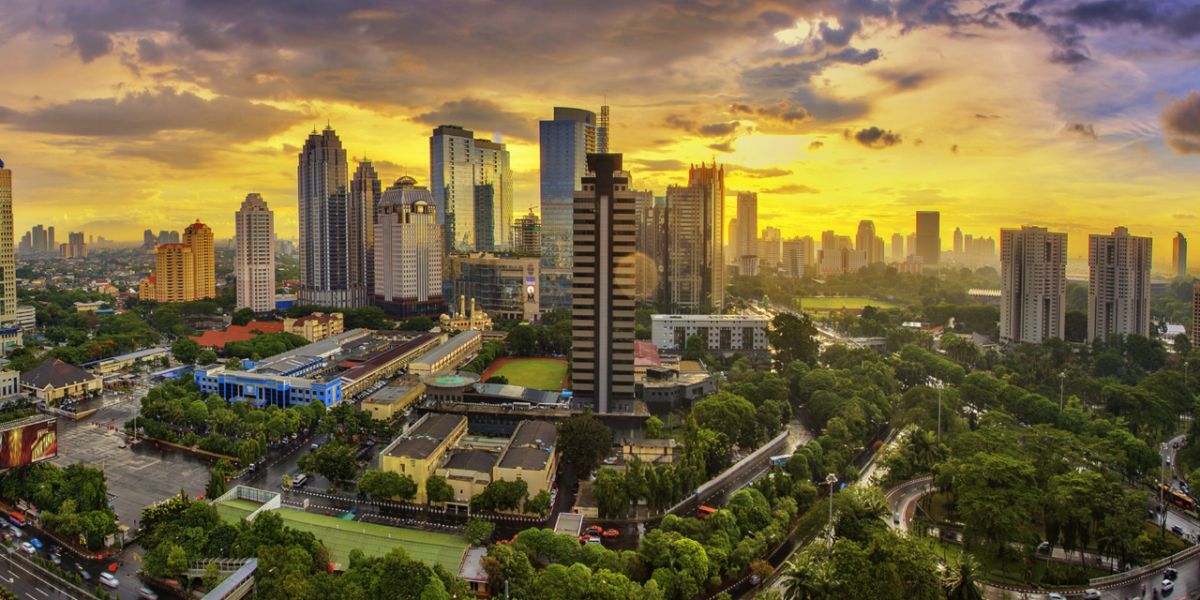
If you have decided to work in Indonesia, you should understand that it is usually quite challenging to obtain the necessary permissions to do so. In fact, to obtain your work permit in Indonesia, you will have to undergo a whole series of procedures and paperwork. The reason for this is that the Indonesian government is extremely protective of local employees.
Consequently, it is mandatory for local companies to justify the recruitment of a foreigner, regardless of the context in which they were hired or the sector in which the company operates. As part of such justification, the company will also have to give a valid reason why an expatriate has been chosen rather than an Indonesian for the specific position. There are, however, some exceptions in certain sectors, where foreign professional skills are more in demand.
You can also decide to go work on your own, for example, by choosing to become a digital nomad in Indonesia or by setting up your own business in Indonesia. However, you should be ware that the difficulties will be more or less the same in obtaining all the necessary permits and authorizations. Be respectful of the legislation in force and be patient with the officials. The slightest sign of anger or outburst can cause you to lose even more time or even have your application rejected outright.
Alternatively, you may choose to seek the assistance of an agency that specializes in recruitment and job search assistance. These agencies should be able to provide you with a list of potential positions that match your work experience, skills and aspirations. In the case of foreigners recruited by local companies prior to their expatriation, it is up to the concerned company to carry out the administrative procedures on behalf of its future employee.
Should your new job bring you to Jakarta, offices and administrative centers will be relatively easy to access. Jakarta is also, without a doubt, the business capital of Indonesia and, as such, is home to most of the country's major economic actors. In any case, in Jakarta, there are greater chances of finding a job that suits you.
How to look for a job in Jakarta?
When thinking about moving to Indonesia and work there, it is highly recommended that you find a job prior to your departure date. This way, once you land, you will have enough time to apply for the appropriate visa and work permit. In practical terms, this means that the Internet will be your first tool for finding a job, and there are many websites, such as Glassdoor, that are dedicated to finding a job in Jakarta. Do not neglect social networks such as Facebook and Linkedin, as they hold invaluable resources that can help you find jobs around the country. Moreover, it is always a good idea to check out Indonesia expat forums and online discussion boards to find more information about local job opportunities.
Most of the foreigners working in Jakarta are sent by companies that have branches and offices there. These companies are mainly in import-export, hospitality, food and beverage, manufacturing, real estate, and finance, among other sectors.
Language teaching is another interesting option to consider, especially when it comes to English and Mandarin. There is indeed a great demand for such skills, coming mainly from international schools and local universities. Over the past twenty years, many new private schools have opened in Indonesia, triggering even more openings for foreign teachers who wish to settle in the country. Naturally, most of these schools are located in Jakarta, home to the country's largest expatriate population. And of course, a teaching degree will be required if you want to work in this sector in Indonesia.
The fast-growing ICT sector in Indonesia is looking for new talents, including foreigners, to speed up the pace of the digital revolution in Indonesia. Many startups have launched in Jakarta over the past few years, and many of them are looking for international expertise in order to grow and come up with new digital solutions adapted to the local context.
The average salary for an expatriate in Jakarta ranges from US$90,000 to US$120,000 per year. Such earnings will allow anyone to live very comfortably in the Indonesian capital. In fact, with Jakarta ranking 403 rd out of 578 on the International Cost of Living Index, life in the Indonesian capital is considered the cheapest as compared to other major cities in the world.
Important:
Whether you are just beginning your job search in Jakarta or considering a change in career, you will have to rely on local professional networks. To do this, you will need to abide by the rules of Jakartan etiquette and demonstrate your sense of respect. This will be crucial for your future professional success in the capital of the Indonesian archipelago.
Sectors that are hiring in Jakarta
With Jakarta bustling with ever-growing activity, opportunities abound for those who pay attention. Executive positions such as Director, CEO, COO, or HR manager are among the most attractive positions for expatriates. Finance, too, is a major provider of jobs for expatriates in Jakarta. As a matter of fact, the Jakarta Stock Exchange is one of the major hubs of the Asian economy, and there is no shortage of demand for stock market specialists.
Following the COVID-19 pandemic in Indonesia, the government has made significant investments in the real estate sector in an attempt to boost the country's economic recovery by facilitating real estate transactions. The opportunities in this area are becoming more and more attractive, especially since foreign investments are now much easier than before in Indonesia.
Restaurant business can be another interesting option. Being one of the great food destinations in Southeast Asia, Jakarta has seen many restaurants open in the city in recent years, offering a variety of local and foreign cuisines. Consequently, offers for manager or chef positions with solid experience abroad have been multiplying lately in Jakarta.
Despite being slowed down by the pandemic, the hospitality and hotel industry continues to be one of the main providers of employment in Indonesia for foreign professionals. Since the phased reopening of Indonesia's borders in late 2021, the number of tourists visiting the archipelago has been steadily increasing, with numbers expected to return to normal by 2024, according to experts. There are several internationally renowned hotel chains with a presence in Jakarta, including Four Points by Sheraton, InterContinental, Le Meridien and Holiday Inn, among others.
Other sectors with high job potential in Jakarta include web development, agriculture, international trade, import-export, accounting, services, telecommunications, engineering, health (especially for doctors and specialists), and many others.
You are more likely to find an interesting position with one of the large international companies that have a branch office in the Indonesian capital. Currently, Jakarta-based companies that recruit the most expatriate professionals are Unity Financial Partners, P.T. Mercedes-Benz Indonesia, PB Taxand, British Council, OTO Group, Cartrack Technologies Phl Inc, EY, RGF HR Agent, ABeam Consulting Indonesia, or CA Global Headhunters International, to name a few. Do not hesitate to check their websites, as the job offers are often posted on their front pages. Also, consider following these companies on LinkedIn or other social networks to be aware of new opportunities as they arise.
Applying for a work permit in Jakarta
In the context of a long-term expatriation, you will need a work permit, as the Indonesian business visa is only valid for 60 days. The work permit is valid for a maximum of two years, and it can be extended later.
As explained above, the process of obtaining a work permit in Indonesia is the responsibility of the employer. In return, you will need to provide a diploma or a competency certificate or show at least five years of work experience related to the position to be filled.
Once you have a work permit, you must join the National Health and Social Security Program (BPJS), which gives you access to free health care in Indonesia and also take Indonesian language classes provided by your employer.
Adapting your CV to Indonesian standards
If you are looking for a job in Jakarta, it is important that your CV is up to date and that it matches the expectations of your potential employers. It is, therefore, mandatory to adapt your CV to local standards. This is necessary no matter what country you are moving to, and Indonesia is no exception to the rule.
In Indonesia, a CV:
- Must be only one page long
- Must include a formal but attractive photo of yourself
- Be concise and provide personal information only if necessary
- Summarize your key strengths
- List your general skills
- Contain your contact information and link to your LinkedIn profile.
While a LinkedIn profile may not seem mandatory to you, be aware that this social network is used by most HR professionals in Indonesia. Its popularity is such that almost all recruitments are nowadays made through it. Therefore, make sure that your LinkedIn profile is up to date, complete and that it highlights your professional attributes.
As far as personal information is concerned, avoid going overboard and disclosing everything about your life. Mentioning that you are married and have children should be more than enough. If you are involved with a charity, you should mention this as well, but there's no need to give details about your medals from intercollegiate games or the number of siblings you have.
If you have previously worked for a prominent company, try to highlight this information and explain how this experience has helped you gain more knowledge in your field of expertise. Finally, try to keep it simple and don't use bright colors for your resume paper, as this may be considered a sign of superficial vanity in Indonesia.
In Indonesia, being punctual is not a habit, except in the workplace. Make sure you arrive early for your interview to prepare yourself and make a good impression. As for the dress code, it will depend on your company. So, don't hesitate to ask your employer about the dress code before your first day at work. If in doubt, choose professional and standard outfits.
During a professional interview, your smile will be part of your assets. Remember that this simple gesture is very important in Indonesia. Be friendly and enthusiastic, but don't overdo it.
Keep in mind that men are greeted with "Bapak" and women with "Ibu". If you know a few Bahasa words, try to sneak them into the conversation. This should make a strong impression on your Indonesian interviewer.
The Jakartan business culture is both friendly and direct. After exchanging some jokes, it will be time to get serious. As you can see, it is not necessary to act too formally during an interview.
Finally, don't forget to follow up on your interview a few days later. Express your gratitude for the opportunity and reaffirm your interest in the position and the company.
Useful links:
We do our best to provide accurate and up to date information. However, if you have noticed any inaccuracies in this article, please let us know in the comments section below.








